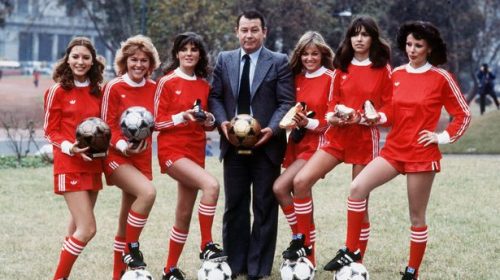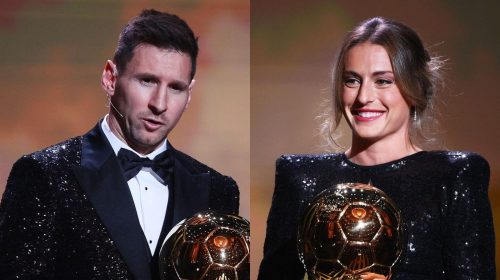Novak Djokovic’s Australian Open title defence is in doubt after a government official said that it is unlikely that unvaccinated players will get visas to enter the country.
“I don’t think an unvaccinated tennis player is going to get a visa to come into this country and if they did get a visa, they’d probably have to quarantine for a couple of weeks,” Victoria Premier Daniel Andrews was quoted as saying by Reuters.
“I don’t think that the person you indicated (Djokovic) or any other tennis player, let’s not personalise it … or golfer or Formula One driver will even get a visa to get here. If I’m wrong, I’m sure the federal government will let you know.”
On Monday, Djokovic declined to reveal his vaccination status and said he was unsure if he would compete at Melbourne Park in January due to the Covid-19 related restrictions. “Things being as they are, I still don’t know if I will go to Melbourne,” the world No.1 told Serbian daily Blic.
“I will not reveal my status whether I have been vaccinated or not. It is a private matter and an inappropriate inquiry. People go too far these days in taking the liberty to ask questions and judge a person. Whatever you say ‘yes, no, maybe, I am thinking about it’, they will take advantage.”
The 34-year-old — who is tied with Roger Federer and Rafael Nadal on 20 Grand Slam singles titles — has won the Australian Open a record nine times, including the past three editions.
“Of course, I want to go. Australia is my most successful Grand Slam tournament,” he said. “I want to compete, I love this sport and I am still motivated. I am following the situation regarding the Australian Open and I understand the final decision (on restrictions) will be made in two weeks. I believe there will be a lot of restrictions just like this year, but I doubt there will be too many changes. My manager, who is in contact with the Australian tennis federation, tells me they are trying to improve the conditions for everyone, both for those who have been vaccinated and those who have not.”
No special arrangements
Andrews, however, said that he opposed special arrangements to let unvaccinated athletes compete in the state.
“On the question of vaccination, no,” Andrews told a media briefing. “(The virus) doesn’t care what your tennis ranking is, or how many Grand Slams you’ve won. It’s completely irrelevant. You need to be vaccinated to keep yourself safe and to keep others safe.”
Melbourne, Australia’s second-largest city, has been under a lockdown since August to control the spread of the highly infectious Delta variant. Restrictions for the city’s five million people will be eased from Friday when 70 per cent of the adult population in Victoria is expected to be fully vaccinated.
Victoria recently included professional athletes in a vaccine mandate covering millions of “authorised workers”, without clarifying whether it applied to athletes from overseas or other Australian states. According to the mandate, authorised workers must have their first vaccine shot by October 15 and their second by November 26 or face being banned from their workplaces. “Professional sport is part of those (items on the) authorised worker list and they have to be double-dose vaccinated,” Andrews said, adding that Victoria’s stance could be a “moot point”, given the federal government might not issue visas to unvaccinated athletes.
According to The Age, Tennis Australia chief Craig Tiley urged the Victorian government to hold off on a vaccine mandate for athletes, before dropping his opposition to what two government sources said was the strong likelihood that Chief Health Officer Brett Sutton would only permit vaccinated players. “Tiley said we won’t get star players and the state government effectively said ‘suck it up’. They capitulated,” The Age quoted a source claiming direct knowledge of the negotiations.
There’s also speculation on Djokovic’s vaccination status. Earlier this month, pictures emerged of the Serb at a concert in New York’s Central Park, which required all attendees to be vaccinated.
Last April, Djokovic made his stance on vaccines known: “Personally I’m opposed to vaccination, and I wouldn’t want to be forced by someone to take a vaccine in order to be able to travel.”
Former World No.1 Andy Roddick recently questioned whether players would be willing to let go of their personal beliefs in order to play. “There are some people who are like – ‘I have like these beliefs but I could put those to the side if it means I could play in a tennis tournament,” Roddick told the Tennis Channel. “If we start to look at the timelines… it’s October 15th (the date for authorised workers to get the first shot). You figure, at least three weeks between shots, if you’re Pfizer, four weeks between shots, if you’re Moderna then two weeks. After that you are considered fully vaccinated. So, players are gonna have to start making that decision now.”
Tsitsipas’ U-turn
In August, World No.3 Stefanos Tsitsipas said that he would only get the vaccination if ATP Tour made it mandatory.
“I don’t see any reason for someone of my age to do it – it hasn’t been tested enough and it has side effects — as long as it’s not mandatory, everyone can decide for themselves,” said Tsitsipas, who was the focal point of Greece’s ‘Stay Home’ campaign at the peak of the pandemic last year.
“I will get vaccinated this year,” he told Antenna TV. “So I can go to restaurants and shops. I support all those who get vaccinated. I am not a doctor; I am a tennis player, so I may not have the most substantiated opinion when it comes to medical issues.”
Women’s World No.2 Aryna Sabalenka missed the Indian Wells tournament this month after testing positive for Covid-19. The 23-year-old publicly expressed hesitation about the vaccine earlier this year.
“So far I don’t really trust it,” Sabalenka told reporters in March. “It’s tough to say, but I don’t really want it yet and I don’t want my family to take it. If I have to do it, then of course I have to do it because our life is a travel life.”




